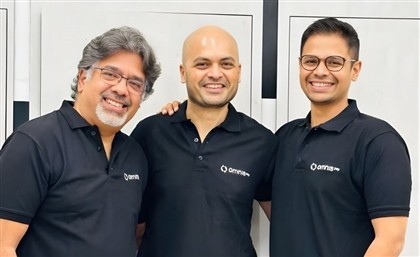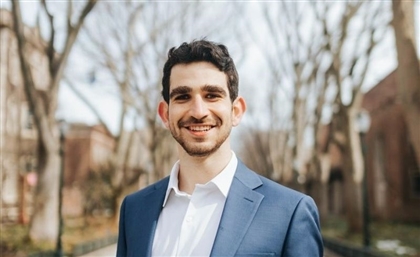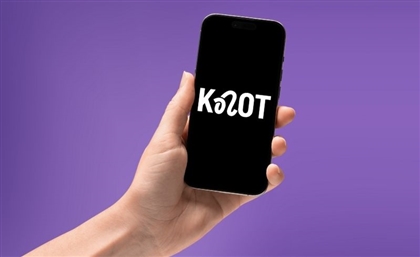How Cashew Payments is Disrupting the Middle East’s BNPL Industry
We speak with Ibtissam Ouassi about how her platform, Cashew Payments, has helped disrupt the BNPL industry in the Middle East.

Fintech platform Cashew Payments has been disrupting the region’s Buy Now Pay Later (BNPL) sector since it was founded in 2020, enabling users to make purchases without using credit cards and gaining hefty interest charges. Ibtissam Ouassif, financial professional turned entrepreneur, was first introduced to the concept of BNPL after experiencing first-hand the challenges of obtaining loans. After relocating to the UAE from Italy, she struggled to get approved for loans despite working at a financial institution and having a regular stream of income at the time. “I didn’t have any credit history because I just moved here. Even though I had income, there were still certain criteria that you had to hit before getting approved,” Ouassif tells StartupScene. “I applied to four or five banks and got rejected from all of them. I thought, this is not ok. I was working at a financial institution and knew some of the rules for approving loans. So, I thought about what we can do within that aspect of restructuring loans from a product perspective.” Once she researched BNPL platforms in the US and Europe, Ouassif decided to help popularise the concept in the Middle East. After partnering with entrepreneur Ammar Afif in 2019, Ouassif launched Cashew Payments a year later. As of 2022, Cashew Payments has raised a total of $41 million in investments according to Crunchbase, and is eyeing an expansion to Egypt and other markets in the MENA region. STARTING OUT While the idea of starting any business may be daunting, Ouassif had been an entrepreneur for much of her adult life. At 17 years old, she launched her first business to support refugees in Italy. Speaking four languages - Arabic, English, Italian, and French - Ouassif worked as a translator and mediator to communicate with refugees and help them settle in the country. Soon afterwards, she received a grant of €25K from the European Union. “It was my first investment, which was a big amount for me at that time,” Ouassif recalls. Ouassif decided to pursue her university studies and later enrol in several fintech courses to learn more about the business world, leading her to start her career in the UAE’s financial sector. “I worked in banking initially, and did product and business development,” Ouassif says. “I got exposed to different areas, and I realised that there are a lot of things that are broken and need innovation. And being in product, I felt that’s one of the things that made me passionate about that specific domain, because you get to research and see what’s been done in the past, what the problems are, and what issues you can solve by focusing on building new technologies.” Focusing on innovative technologies, the founders built Cashew Payments’ infrastructure and software from scratch, distinguishing it from other BNPL platforms emerging in the region. “We built Cashew’s infrastructure in-house. We designed everything,” Ouassif says. “There are many other products that we want to build features on top of the current infrastructure.” Although a relatively young startup, Cashew Payments grew 900% from 2021 to 2022, and its user adoption rate more than quadrupled in the last six months, according to the startup. ADAPTING TO THE REGION To ensure the startup’s success in the market, Cashew Payments had to quickly adapt to the region and be relevant to customers in the Middle East. While the BNPL is a well-established concept globally, its mode of application differs in the Middle East. Unlike other parts of the world, BNPL in the region is made accessible to almost anyone with a credit or debit card, or even just a bank account. “What we did, we enabled it for everybody,” says Ouassif. “If you don’t have access to a credit card, or you don’t feel safe providing your card details online for whatever reason, you can link it to your bank account.” Another differentiating factor is the target audience. After initially targeting Gen Z consumers, BNPL in the UAE has become more popular amongst young and middle-aged professionals who are looking to finance many of their needs, including their healthcare and their education. “Of course, there is a need in fashion and retail, but at Cashew we see a need in other industries,” Ouassif adds. “And soon we are going to provide it in clinics and dental treatments, and anywhere where we see an actual need.” SEEKING REGULATIONS As BNPL is becoming increasingly popular with both merchants and customers, it is also coming under increased scrutiny, particularly in the UAE. This is because BNPL is not yet regulated by the Dubai Financial Services Authority (DFSA), leading some consumers to be concerned about credit risk and non-payment consequences, amongst other issues. But Ouassif is hopeful that regulation will soon come to the region. “I’m a firm believer that regulation is much needed, specifically in financial services, when dealing with people’s money and data,” she says. “We’ve seen what happens in the crypto world when there is no oversight or regulation.” With BNPL payments in the region expected to grow by 74.6% on an annual basis to reach $13,053.4 million by the end of 2022, according to a report by Research and Markets, the push for regulation is becoming increasingly important. However, Ouassif believes it shouldn’t come at the expense of hindering innovation and development. “Regulators need to work very closely with startups in order to regulate efficiently, in a way that does not compromise the user experience or the way products are delivered to the end user, and does not hinder innovation,” says Ouassif. Meanwhile, to continue growing the startup, Ouassif is looking to expand to Egypt, Saudi Arabia, and Oman amongst other countries in the MENA region, as well as introduce new products in the market.
- Previous Article Egypt’s Digital Supply Chain Suplyd Raises $1.6M in Pre-Seed Round
- Next Article 10th Edition of RiseUp Summit to Take Place This March
Trending This Month
-
Jan 19, 2026






















